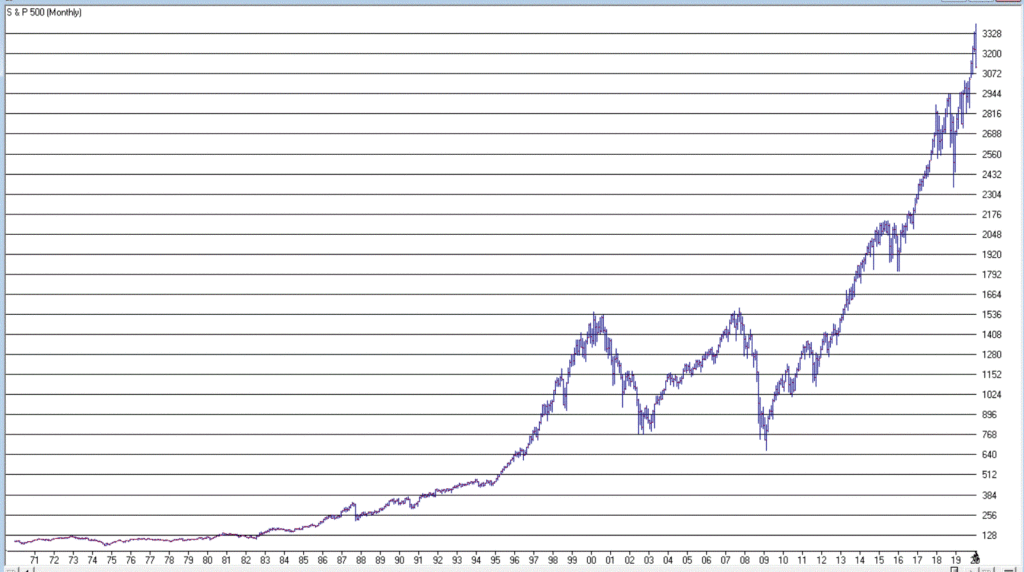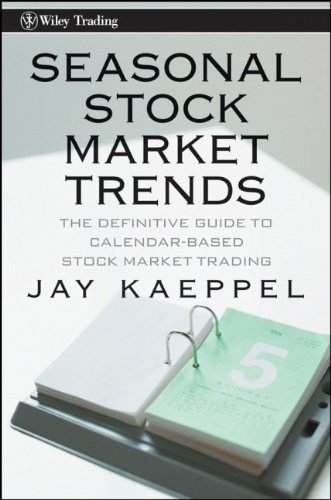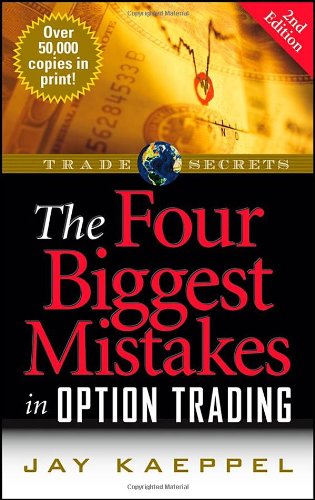The problem with situations like the current one – besides the angst and real-life implications of having your net worth decrease quickly – is that people tend to get wrapped up in tangential issues. Turn on the cable news and you will likely here breathless speculation about how seriously the coronoavirus will impact the U.S. – and the world – both in terms of how many people may die in the shorter term and how badly the economy might tank as everyone hides in their homes in the longer run.
Blah, blah, blah.
Looks folks, do whatever it is you think you need to do in terms of surviving what we are told is an “inevitable” pandemic. Stock up on food, water, supplies, masks, whatever. But this is an investment blog. So, let’s get down to the only question that really matters right now for investors: “What to do now.”
And the answers depends on the following: Are you fully invested or do you have cash to invest?
If You Are Fully Invested
While the ferocity of the decline is quite unsettling, the reality is that this market has been overdue for “a whack.” During the rally in the last year, cash levels fell substantially, confidence rose significantly, volatility fell to barely a beep, and the number of investors adopting the “I should just put all my money in an index fund and forget about it” approach seemed to accelerate (speaking anecdotally on that last point). So not really a surprise that the market would “shake the trees.”
Just to put the current decline in perspective, please take a quick glance at the monthly chart of the S&P 500 Index in Figure 1.

Figure 1 – S&P 500 Index Monthly (1971-present)
If you are fully invested, you have 3 basic choices:
*Sell everything – While I cannot predict what will happen next, I will just mention that dumping your entire portfolio in a panic on the sixth consecutive day of a decline just sounds like one of those things you may well look back on with regret. If you are contemplating this approach (and even if you are not) please read this article, this article and this article regarding how long-term tops typically form.
*Sell some – While the comment about doing so this well into a panic selling decline applies here also, the reality is that if you are completely uncomfortable with your exposure to the stock market, there is nothing wrong with “playing defense” – as long as you understand that doing so may cost you in the long run. If you sell – and I am just making up a number here – 25% of your portfolio you can say, “OK, I have less exposure if things get worse and I have some cash I can put to work at lower levels if that is the case.” Fine. Just remember that if the market does turn back up you may end up kicking yourself somewhere down the road.
*Hold On – Buying and holding forever with 100% of your capital is not my favorite strategy. Please take a moment to review Figures 3 and 4 in this article. There is a time to “play defense.” When the Dow, S&P 500, Nasdaq 100 and Russell 2000 all drop below their 200-day moving averages (the Dow and Russell already have) and especially if those averages start to roll over the risk of a significant bear market increases significantly. But once again please read this article, this article and this article to get a little “non panic induced” historical perspective.
If You Have Cash
If you have cash to invest, then situations like this can prove to be a buying opportunity. Unfortunately, they can also prove to be a “trying to catch a falling safe” opportunity (Sorry, I don’t make the rules). So, I suggest one of two approaches:
*Be patient and wait for, a) a reflex rally, b) another decline, and c) a reversal back to the upside – especially if it involves anything resembling a double bottom.
*Put some cash to work now (or at least soon) and hold back some for another opportunity later.
Totally off the beaten path comment: For the record I have not “taken the plunge” yet and am NOT “recommending” that you do, but my gut says that now (or at least soon) is going to be a terrific buying opportunity for the loathed, hated and utterly bombed out energy sector (my favorite is HAL unless and until it takes out it recent low of $16.97 a share).
Summary
*Keep your head screwed on straight
*Regarding pandemics and stock markets, adopt a “hope for the best, prepare for the worst” mentality
*If you believe you are overexposed in the market then make a plan for when and what and how much you should sell. Then follow your plan and DO NOT look back in regret
*If you want to put your head in the sand and just hold on forever, fight that urge (again I refer you to the articles linked above)
*If you have cash to invest – don’t try to be a hero, but don’t be a total wimp either
Um, have a nice day(?)
Jay Kaeppel
Disclaimer: The information, opinions and ideas expressed herein are for informational and educational purposes only and are based on research conducted and presented solely by the author. The information presented does not represent the views of the author only and does not constitute a complete description of any investment service. In addition, nothing presented herein should be construed as investment advice, as an advertisement or offering of investment advisory services, or as an offer to sell or a solicitation to buy any security. The data presented herein were obtained from various third-party sources. While the data is believed to be reliable, no representation is made as to, and no responsibility, warranty or liability is accepted for the accuracy or completeness of such information. International investments are subject to additional risks such as currency fluctuations, political instability and the potential for illiquid markets. Past performance is no guarantee of future results. There is risk of loss in all trading. Back tested performance does not represent actual performance and should not be interpreted as an indication of such performance. Also, back tested performance results have certain inherent limitations and differs from actual performance because it is achieved with the benefit of hindsight.


Thanks Jay.
Hey, Jay, my take on this meltdown stuff goes like this. I’ve been at this since 1980 and everyone uses 1987 as a horrific meltdown. If you invested staring in 1986 it sure looked like it. But if you began in 1980, 1987 was nothing but an abrupt correction. I think it all comes down to when did you start investing (and measuring!), and when will you need your money, e.g. retirement. Me, at nearly 80, I’m 100% cash.
Cheers,
Jim
Jim, As I have written about a little bit lately, I am not a fan of buying an holding an index fund. History is replete with massive declines and long sideways periods. As a result I argue that buying and holding is as much a function of timing as anything else – i.e., did you buy and hold during the right years (say 1982-2000, 2009-2019)? OR during the wrong years (1927-1949, 1965-1982, 2000-2012)? Bottom line, I agree with you entirely. Take Care, Jay